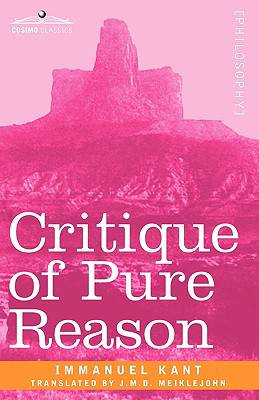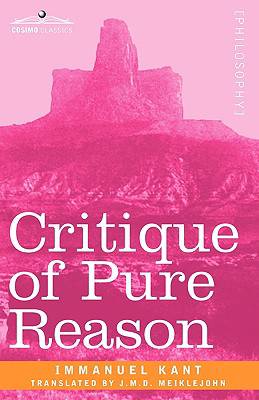
- Afhalen na 1 uur in een winkel met voorraad
- Gratis thuislevering in België vanaf € 30
- Ruim aanbod met 7 miljoen producten
- Afhalen na 1 uur in een winkel met voorraad
- Gratis thuislevering in België vanaf € 30
- Ruim aanbod met 7 miljoen producten
Zoeken
Omschrijving
Often called Kant's "first critique," this is a foundational work of modern philosophy, one that attempts to define the very nature of reason, and to join the two schools of thought dominant in the late 18th century: that of Empiricism and Rationalism. At the border between thinking subject to religion and realities as the burgeoning sciences were demonstrating at the time, Kant explores ethics, the limits of human knowledge, logic, deduction, observation, and intuition, and in the process laid the groundwork for the modern intellect. First published in 1781, this is required reading for anyone wishing to be considerd well educated. German metaphysician IMMANUEL KANT (1724-1804) served as a librarian of the Royal Library, a prestigious government position, and as a professor at Königsberg University. His other works include Observations on the Feeling of the Beautiful and Sublime (1764), Groundwork of the Metaphysics of Morals (1785), and Critique of Practical Reason (1788).
Specificaties
Betrokkenen
- Auteur(s):
- Uitgeverij:
Inhoud
- Aantal bladzijden:
- 504
- Taal:
- Engels
Eigenschappen
- Productcode (EAN):
- 9781605204499
- Verschijningsdatum:
- 8/05/2009
- Uitvoering:
- Paperback
- Formaat:
- Trade paperback (VS)
- Afmetingen:
- 140 mm x 216 mm
- Gewicht:
- 635 g

Alleen bij Standaard Boekhandel
+ 67 punten op je klantenkaart van Standaard Boekhandel
Beoordelingen
We publiceren alleen reviews die voldoen aan de voorwaarden voor reviews. Bekijk onze voorwaarden voor reviews.








